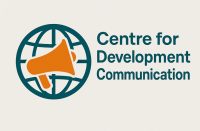In Nigeria — and much of Africa — we’ve tragically reduced democracy to elections, and elections to nothing more than voting.
Every four years, the country comes alive: campaign posters flood the streets, ballot boxes are rolled out, slogans fill the air, and citizens are urged to “go and vote.” But as soon as the votes are counted — transparently or not — the energy collapses. Citizens return to survival mode, while the political elite resumes business as usual. Yet, democracy remains broken.
This is because democracy is not a one-day ritual. It is not merely about casting a ballot. Democracy is a continuous process — a culture of engagement, a system of accountability, and a conversation that must never go silent. The oxygen that keeps democracy alive between elections is communication.
Unfortunately, many of the reforms championed by both state and non-state actors remain narrowly focused on electoral procedures: biometric technology, voting logistics, election tribunals. While important, these cover only a fraction of what it takes to sustain a democratic society.
We’ve paid far too little attention to what happens after elections — how public officials communicate, how decisions are explained, how citizens give feedback, how marginalized voices are heard, and how public trust is built or broken over time.
That is why I have chosen to dedicate a significant part of my work to democracy communication — because what we currently practice is incomplete, fragile, and dangerously shallow.
Democracy is not just about who wins power. It’s about how the people are heard — consistently, honestly, and without fear.
